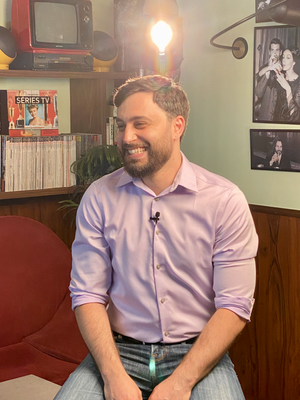
Audiences, as of late, have been complaining about recent franchise films, and serialized content, and access to social media platforms makes those subjective opinionated voices more accessible and easily heard, or read.
Sure, professional film critics, including myself, are guilty of criticizing and sharing their objective opinion but they also tend to be the kind of audience members that actually seek to truly enjoy what they are watching.
After the release of Star Wars Episode VIII: The Last Jedi, fans took to Rotten Tomatoes, the film review website, and began their wrathful complaining, whining, grumbling, and tore the film to shreds.
Their anger even went as far as to create a very ridiculous petition to force Disney to make The Last Jedi non-canonical.
All this because the film resulted in the subversion of the fanboys’ expectations.
But isn’t that what audiences should want from a film?
Back in the days of the original trilogy, social media was nonexistent, spoilers were also nonexistent, so the films had the advantage of audience ignorance up until the day of the release.
Now, not only are their risks of leaks, but every fan has a theory, a speculation, and a vision for how he or she believes the studio, or director should make the film.
Opinions on a film experience should be voiced, but what was occurring in this instance was more aggressive, and verbally violent than anything I have ever witnessed within the fandom.
Some proclaimed it was too long, others too slow, or too revolutionary because of the way the film handled the beloved Luke Skywalker, or whatever else they came up with...I, however, enjoyed every single moment. As a screenwriter, I could see what director and writer Rian Johnson was trying to do, and the strategic reason The Last Jedi’s narrative was very much a meta-narrative.
What Johnson and Disney are trying to do with this entry is simply open the door for the various possibilities
Not all watchers felt this way, although if you dig deep into the conventions of the fantasy genre (cue all those who are going to proclaim that GRRM broke conventions when he wrote Game of Thrones), everything about the overall structure of the series fits perfectly into the conventions. Sure, if we look at the events separately, many of them broke conventions and it all started with Ned Stark's death in the first season. But, on a larger scale, the death of the Stark patriarch pushed the whole family into a game not all of them were ready to play, all leading to where they are now.
We've simply become cynics.
Gone are the days of watching and believing in magic. Gone are the days when plot twists shocked us. Gone are the days of letting go and giving ourselves to stories. We have to question, and ponder, and analyze, and theorize...
Let me make myself clear, I am not saying we should dumb ourselves down so that we can enjoy, but what I am asking is when does asking too much become the cause of our disappointment.
Why does everything have to be questioned?
Why can't we just enjoy the mystery?
During the first few years of cinema, all it took for people to be entertained were short films of people walking out of work, a train docking into a train station, parents feeding their child ice cream.
Nowadays, nothing seems to satisfy.
The audience demand one thing, and when they receive it, they are unhappy and demand something else entirely. Maybe the whole concept of on-demand is to blame...maybe it is the ability for audiences to receive what they demand right now, and in an instant is what is somehow affecting the way content is being received...
As a screenwriter, and someone who is also venturing into the world of novels for the first time, this makes me rather nervous and fuels me with self-doubt.
Could this whole thing be human nature's obsession with tearing down good because of some deep sense of dissatisfaction with our own lives?
We demand, and demand, and demand...but what do we give in return? Do we give the benefit of the doubt? Do we let go and respect the work that is laid before us? Do we give credit where credit is due?
I watch content to enjoy it. I read novels to enjoy them. I don't overthink, I don't over analyze.
Don't get me wrong, I am someone who loves cinema, and serialized content obsessively and I do look for all the technicalities and the process of how a film, or a series was made but I don't over do it. I allow my inner child to enjoy it. I allow the magic of it all to fill me. I let go of all my real world cynicism and just watch.
Yes, there are times where even that is not enough, cue Warcraft.
Another in the fantasy genre, Warcraft failed on many levels and not even my belief in magic and mystery could protect it from my disappointment. The story was weak, the characters did not fulfill their parts, not to mention the cartoon-esque CGI. With Warcraft, predictability was only the surface. With so much content available from the games, the writers did not even challenge the audience. With all that said, the film is finding great success in China which will guarantee sequels.
Maybe this entire blog post is a rant. Maybe it is my previously mentioned self-doubt talking. Or maybe it is my frustration with how the world now criticizes a craft that is my oxygen.
A dear friend of mine once told me that the higher I place my expectations in people, the more disappointed I was going to be. I'd like to say the same thing to the world wide audience of films and serialized content. The higher you place cinema, or serialized content on a golden pedestal, or an iron throne, the more disappointed you are going to be, and the more you are going to feel like showrunners, or directors are failing you.
You are the cause of your own disappointment.
It is just that simple.
